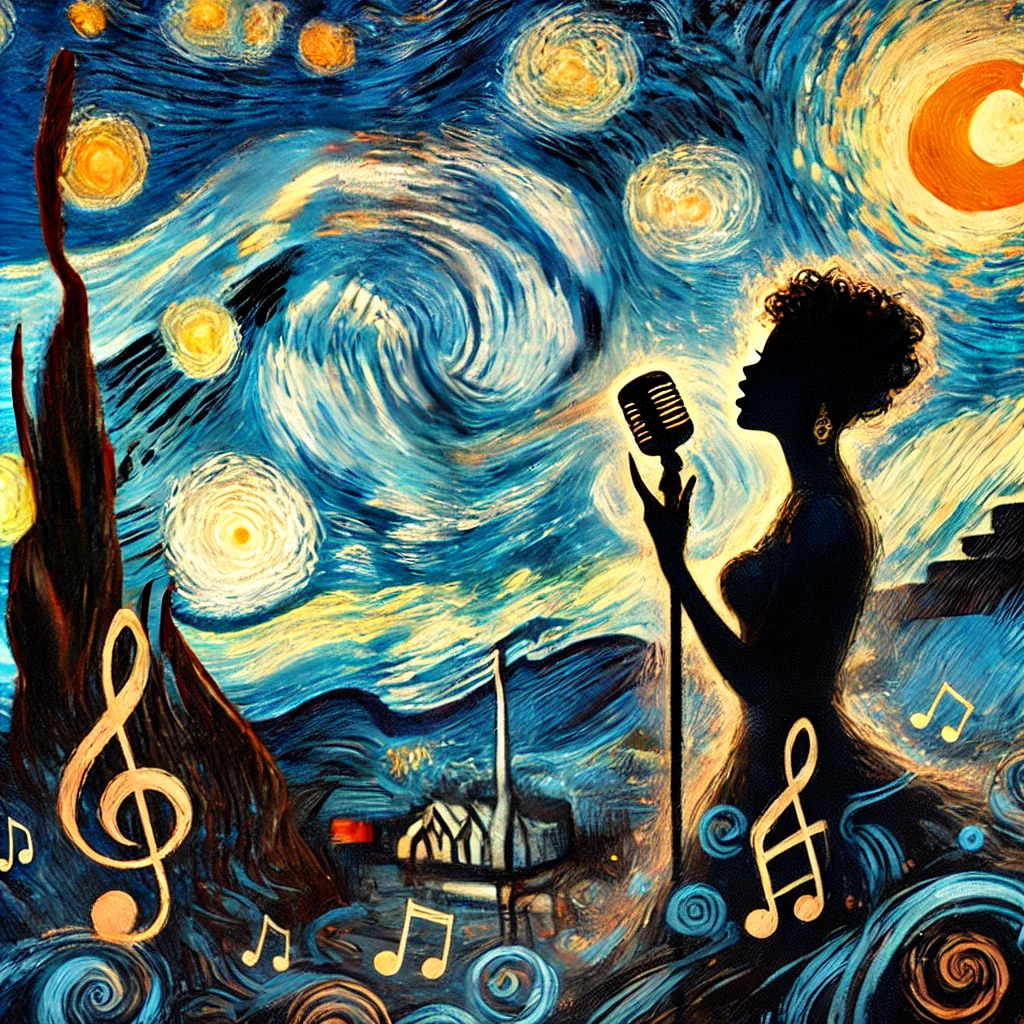Billie Holiday: The Voice That Defied a Broken World
Billie Holiday was more than a jazz legend—she was a symbol of resilience and defiance. Facing racism, gender bias, addiction, and censorship, she turned pain into powerful music. From Strange Fruit to personal battles, her legacy endures, proving that true artistry can never be silenced.

Introduction
Billie Holiday was more than just a jazz singer—she was a symbol of raw emotion, unyielding resistance, and tragic vulnerability. Born in 1915 in a deeply segregated America, Holiday navigated a world where the intersection of race, gender, addiction, and personal trauma created relentless obstacles. Her voice carried the weight of pain and beauty, and yet, it was often silenced by the very society that revered her talent. The stigma she faced—whether as a Black woman, a victim of abuse, or a person battling addiction—defined much of her life. Yet, in her struggles, she left behind a legacy of resilience and artistic brilliance that continues to inspire.
The Many Stigmas Billie Holiday Faced
Billie Holiday’s life was fraught with challenges, many of which stemmed from the rigid and prejudiced structures of her time. These challenges were not only external but also deeply internalized, shaping her journey in profound ways.
1. Racial Discrimination in a Segregated America
Despite her immense talent, Holiday was constantly subjected to racial discrimination. She toured with white bands, yet she was forced to enter through back doors, eat separately, and endure blatant racism. The very venues that profited from her music refused to let her use their restrooms. In many ways, she symbolized the plight of Black artists who were revered on stage but disrespected everywhere else.
2. Gender and Sexuality Bias
As a Black woman in the 1930s and ‘40s, Billie Holiday had little agency over her own career. She was often exploited by men who sought to control her talent for their gain. Additionally, she defied conventional expectations of women’s behavior. She drank, smoked, and openly pursued relationships, including rumored affairs with women—actions that only deepened societal condemnation.
3. Heroin Addiction and Criminalization
Holiday's struggles with substance abuse became one of the most publicized aspects of her life. Instead of receiving support or treatment, she was relentlessly pursued by the authorities, particularly by the Federal Bureau of Narcotics. Harry Anslinger, a known racist and architect of America’s war on drugs, made an example of Holiday, orchestrating her arrest and eventual imprisonment. The criminalization of her addiction not only ruined her financially but also severely damaged her health.
4. The Backlash Against ‘Strange Fruit’
One of Holiday’s most defining songs, Strange Fruit, was a haunting protest against the lynching of Black Americans. This song made her a target of government agencies, club owners, and critics who saw it as a direct challenge to the status quo. Despite the backlash, she continued to perform it, understanding its importance in highlighting racial violence. However, her insistence on singing Strange Fruit cost her work, friends, and stability.
How She Handled These Struggles
Billie Holiday endured immense hardship, yet she never fully succumbed to the forces trying to silence her. Here’s how she navigated her struggles:
- Using Music as a Weapon – Holiday poured her pain and defiance into her songs, using her art as a means of protest, storytelling, and catharsis.
- Defying Censorship – She continued performing Strange Fruit despite being warned, fined, and threatened.
- Reinventing Herself – Even when venues shut their doors, she found ways to continue making music, recording albums that would later be hailed as masterpieces.
- Refusing to Hide – Despite being vilified, she embraced her identity, refusing to conform to societal expectations of how a woman—especially a Black woman—should behave.
- Seeking Love, Despite the Pain – Holiday never stopped searching for love and connection, even though many of her relationships were destructive. She believed in the idea of love, even when it failed her.
Lessons We Can Learn
Billie Holiday’s life offers us invaluable lessons about resilience, justice, and the human spirit:
- Art is a powerful form of resistance. Holiday’s decision to sing Strange Fruit despite the risks shows the impact of art in confronting injustice.
- Addiction should be treated, not criminalized. Holiday’s persecution by law enforcement highlights the need for a more compassionate approach to substance abuse.
- Society punishes those who challenge the status quo. From civil rights to personal freedom, Holiday’s struggles remind us that speaking truth to power often comes at great cost.
- The world often loves artists more than it loves the people behind them. Holiday was revered as a singer but discarded as a person, a pattern we still see today with many celebrities.
- Legacy is more enduring than scandal. Though her life was marred by controversy, Billie Holiday’s influence continues to shape music and activism.
Conclusion
Billie Holiday lived a life of extraordinary highs and devastating lows. She was revered for her music but condemned for her personal struggles. She used her voice to speak truths that others feared, yet she paid the price for her defiance. Her story is a testament to the injustices that society imposes on those who do not fit within its narrow expectations. However, her legacy endures—her music still haunts, her defiance still inspires, and her pain still resonates. Billie Holiday was more than a singer; she was a symbol of strength in the face of relentless adversity. And that is why she can never be silenced.
